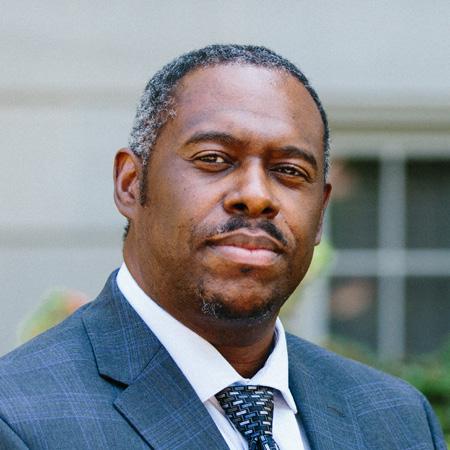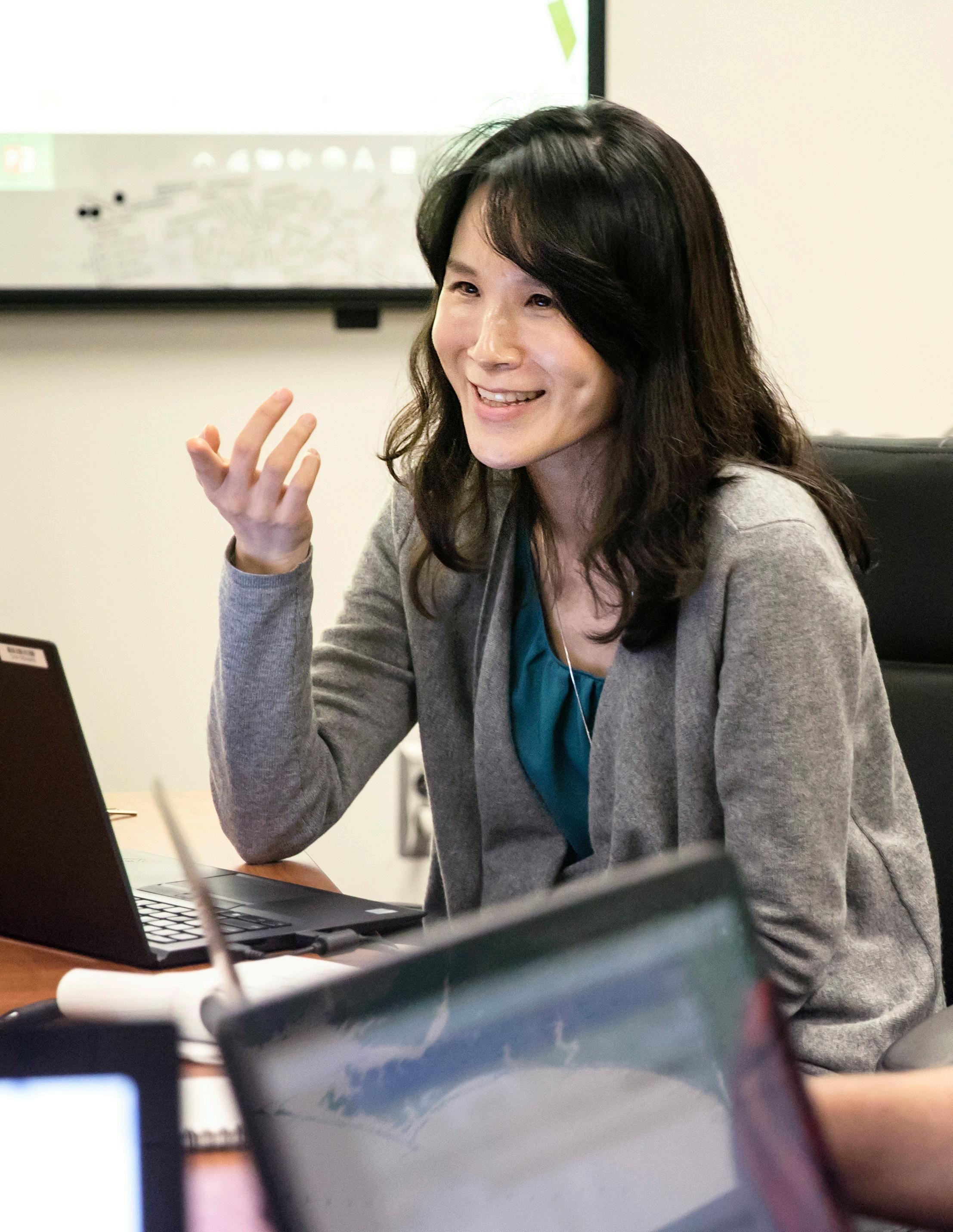Programs

Greetings,
At the UNC School of Education, we know that our world is propelled by people. Here in Chapel Hill, we build the minds, spirit, and resolve of future leaders and scholars dedicated to making our world a better place through education and the highest quality educational research.
Our community of scholars, students, staff, and alumni work to solve education’s most pressing and persistent problems. Through this work, we seek equitable opportunities and outcomes for all to ensure that every learner has the opportunity to reach their maximum potential.
We are committed to diversity, equity, and inclusion in our work to realize the transformative power of education. Our research and our doctoral programs strive to produce scholarship and scholars that can break down barriers, lift up individuals, and empower communities to rise and thrive.
We take pride knowing that you wish to either start or advance your career in education. And we are honored that you are considering our School in this important decision. Our programs will not only provide you the knowledge and skills to be an educational researcher, they will provide tools to be a leader in that work.
Join us in our work to Propel the World.
Fouad Abd-El-Khalick Dean and Professor

How you can propel the world
At the UNC School of Education, we propel the world. These words are certainly ambitious, and they reflect our commitment to education. In Peabody Hall on the campus of the University of North Carolina at Chapel Hill, we prepare the highest quality educators and educational researchers who, in turn, will prepare and impact a generation of minds and hearts who will change our world in countless ways.
Each member of our community’s work to propel the world looks different, but collectively our work is grounded by four pillars: collaborating for the greater good, advancing knowledge and driving innovation, empowering leaders of tomorrow, and educating the whole.
The research we produce is some of our fields’ best, informing poli cies, evidence-based practices, how students learn, and much more. Our graduates learn how to conduct this kind of research, but, more important, they learn how to act upon it.
No matter the doctoral program or track, our student-focused faculty members ensure you are prepared to serve every learner through your work, especially the most vulnerable and marginalized among them.
When you graduate and leave Chapel Hill, you will stand among an alumni network of leading researchers and highly effective education leaders and educators, prepared to lead in a variety of settings and prepared to advocate for and realize equity for all learners.

A proudly public leader serving North Carolina and beyond
For its 2023 guide, U.S. News & World Report ranked the UNC School of Education No. 23, rising 12 places since 2017. The School ranked No. 14 among public schools of education and remained the No. 1 school of education in North Carolina. These rankings are based on quality assessments by a range of education scholars and professionals, including school and district leaders.

In addition to overall ranking, the School is ranked in the following specialty areas:
• Secondary Teacher Education — No. 16
• Education Policy — No. 17
• Special Education — No. 19 (No. 18 among publics)
• Educational Administration/Supervision — No. 20
• Curriculum and Instruction — No. 22
No.
SCHOOL OF EDUCATION
No.
PUBLIC SCHOOL OF EDUCATION
SCHOOL OF EDUCATION IN NORTH CAROLINA
Students Statistics
TOTAL ENROLLMENT
DOCTORAL PROGRAM ENROLLMENT
DOCTORAL PROGRAM ENROLLMENT

Our Faculty
Once on campus, you will learn from some of the field’s most respected researchers and faculty members with a proven track record of producing the highest quality scholars, educators, and education leaders. Our faculty members have expertise in a number of areas — learning sciences, educational and school psychology, curriculum and instruction, policy and leadership, special education, and more — and their student-focused approach ensures that knowledge benefits you and your career.

Constance Lindsay | Assistant Professor Lindsay has worked in education policy in various contexts, applying her research training in traditional studies and in creating and evaluating new systems and policies. Her research focuses on policies and practices to close racial achievement gaps, and on teacher diversity and how to obtain a high quality, diverse educator workforce.

Christopher Scott, Ed.D. | Clinical Assistant Professor Before joining the faculty, Scott spent 15 years in public school and district leadership in North Carolina and Washington. While he balances teaching with supervision of aspiring principals and superintendents, he also continues in research that addresses the academic achievement and ethnic identity development of American Indian students in K-12 and higher education.

Jeffrey Greene, Ph.D. | McMichael Family Professor Greene leverages the science of learning to help people be better critical consumers and producers of information, particularly in online and technology environments. With his students and collaborators from Carolina and around the world, he studies how to help students self-regulate their learning so that they can maximize their potential online and in the classroom.

Marisa Marraccini, Ph.D. | Assistant Professor Marraccini’s research aims to promote child and adolescent mental health in the context of their daily lives — school settings. She is leading one study to develop guidelines for school re-entry following psychiatric hospitalization and another inquiry focused on school predictors of recovery from suicidal thoughts and behaviors.

Sherick Hughes, Ph.D. | Samuel M. Holton Professor Hughes has spent 20+ years investigating and addressing equity issues at the intersection of theory, policy, and practice. He has applied a variety of research methods that inform international dialogues on how inequitable social structures are developed, reproduced, and resisted; including the processes of learning and unlearning intergroup biases.
Meet all of our faculty members at ed.unc.edu/people

Our Programs
Our doctoral degree programs are designed to prepare its students for successful careers in education — as either scholars or leaders — and with tools that help ensure learners reach their maximum potential.
Both our Ph.D. in Education, which has four concentrations, and our Ph.D. in School Psychology provide students provide students with opportunities to engage in coursework, research, and practice with some of education’s most renowned scholars. And our Ed.D. in Educational Leadership program equips its students — practicefocused educational leaders — with understandings, skills, and knowledge to improve school systems.

Doctoral Degrees Offered
Ed. D. in Educational Leadership
Our Educational Leadership doctoral program develops senior administrative leaders for K-12 school districts throughout North Carolina and beyond. The program — designed to fit the needs of working educators through part-time options and evening classes — prepares central-level leaders to excel in an ever-changing educational environment. With equity and social justice as core values, our students learn to make schools and districts more effective in their work to ensure student success and well-being.
Ph.D. in Education
Our Ph.D. in Education program offers four concentrations of study:

Applied Developmental Sciences and Special Education
ADSSE provides a rigorous theoretical and interdisciplinary foundation in developmental science and in special education, grounding its students in evidence-based models of prevention and intervention and empowering them to improve the lives of at-risk children and youth and their families, with a focus on serving those from diverse sociocultural backgrounds.
Culture, Curriculum, and Teacher Education
The Culture, Curriculum and Teacher Education concentration prepares future scholars, researchers, and educators to work in areas of social and cultural foundations of education with particular attention to race, gender, social class, sexual orientation, and language practices; critical literacies; qualitative research methods; teacher education and curriculum theory and change.
Learning Sciences and Psychological Studies
The Learning Sciences and Psychological Studies concentration prepares graduates — through a broad range of methodologies and theories from multiple disciplines — for research careers developing new understandings of how people learn, how technology can enhance enhance learning, and how to design learning environments that maximize learning.
Policy, Leadership, and School Improvement
The Policy, Leadership, and School Improvement concentration prepares its graduates to conduct rigorous research, using cutting-edge qualitative and quantitative educational research methods, into the social, political, and economic conditions affecting schools and to recommend policy solutions that are effective, socially just, and technically sound.
Ph.D. in School Psychology
The School Psychology program integrates field experience in an intensive program that prepares students as researchers and clinicians proficient in assessment, intervention, prevention, and program development. The program is accredited by both the Ameri can Psychological Association and the National Association of School Psychologists, and our graduates are eligible to seek licensure as a psychologist in North Carolina and additional states.
Our Students
Our students come from North Carolina and beyond, from careers in education and from a number of other fields and industries. Each student brings a unique perspective that enriches our classrooms, research labs, and the broader Carolina community. They all come to Carolina with a passion to redefine what it means to educate. When our students graduate, they take with tools, knowledge, and experiences that will help them to propel the world through education.

Elena Ashburn ’18 | Ed.D. in Educational Leadership
Ashburn, a respected leader in the Wake County Public School System, completed the Ed.D. in Educational Leadership program while serving as a school administrator. Her commitment to continuous improvement and to building a team passionate about doing their best for their students earned her recognition as the 2021 Wells Fargo N.C. Principal of the Year.
Brittany Murray ’20 | Ph.D. in Education
After graduating, Murray accepted a position as an assistant professor of edu cational studies and political science at Davidson College. While still a doctoral student, she co-authored a number of papers investigating the role of families and communities in shaping policy, resources, and learning opportunities for students, with an emphasis on parent-teacher organizations.



Dalila Dragnic-Cindric ’20 | Ph.D. in Education
As a doctoral student, Dragnic-Cindric was also a National Science Foundation Graduate Research Fellow. Her research in learning sciences is driven by her desire to discern the best ways for individuals and teams to deal with uncertainty in various settings, from collaborative learning in the classroom to addressing uncertainty in management and medicine.
Dan Earixson | Ph.D. in School Psychology
Before pursuing his Ph.D., Earixson was an experienced psychometrist and applied behavior analysis therapist working in health care. At Carolina, he has worked with the Carolina Institute for Developmental Disabilities, launching a virtual college fair for students with special needs. He is currently completing a clinical psychology internship at the University of Minnesota.

Students and Research

In addition to gaining the foundational knowledge of their respective discipline in the classroom, our doctoral students pursue a range of scholarly questions across fields. They work closely with faculty mem bers to solve education’s most pressing and persistent problems. Our students provide meaningful perspectives and contributions to ground breaking research projects funded by various public and private institutions.
Robert Plumley | Ph.D. in Education

A student in the Learning Sciences and Psychological Studies concentration, Plumley works with faculty members Matt Bernacki and Jeff Greene on a National Science Foundation-funded project that uses data generated by online learning management systems to help college students succeed in introductory science courses. Plumley and the rest of the research team are focusing on ways to ethically and equitably use learning analytics to help students improve their learning.
Cari Carson | Ph.D. in Education

After working for several years as an attorney representing families seeking appropriate educational opportunities for children with disabilities, Carson enrolled in the PhD program to study systemic approaches to improving equity in special education. Working with Lora Cohen-Vogel, Ph.D., Carson studies educational change efforts and is pursuing UNC’s new Interprofessional Grad uate Certificate in Improvement Science and Implementation.
Cari Pittleman | Ph.D. in School Psychology
Pittleman’s research and clinical interests include school-based mental health supports, intervention for culturally and linguistically diverse clients, pediatric neuropsychology, Dialectical Behavior Therapy, and social justice. She works with Marisa Marraccini, Ph.D., whose research creates schoolbased supports that help prevent suicide after psychiatric hospitalization.
Jasmyne Yeldell | Ph.D. in Education

Yeldell, a student in Curriculum, Culture, and Teacher Education, is interested in science education, with research focusing on the science identity formation processes of children of color in addition to equitable science curriculum development and hands-on science education. She works with Troy Sadler, Ph.D., studying equitable modeling practices. She is also a research assistant with Dionne Cross Francis, Ph.D., on the I CAN PERSIST STEM Initiative, a culturally responsive, evidenced-based program to advance academic and career persistence among women and girls of color interested in pursuing science, technology, engineering, and mathematics fields.

Our Alumni Network
The UNC School of Education proudly boasts more than 22,000 alumni across fields and professions, living in all 100 North Carolina counties, all 50 states, and more than 40 countries. Our alumni are often distinguished within their schools, districts, and fields. Many have been recognized for their outstanding leadership and service to education and educational research. Each possesses an unwavering commitment to learners and educators and the foundational role that education plays in our world.
Our doctoral graduates have gone on to successful careers in organizations that include the following:
• Northwestern University
• University of Michigan
• U.S. Department of Education
• North Carolina Central University
• Davidson College
• Appalachian State University
• University of Missouri - Columbia
• University of Delaware
• UNC-Wilmington
• UNC Eshelman School of Pharmacy
• North Carolina Department of Public Instruction
• MetaMetrics
• North Carolina Virtual Public School
• Wake County (N.C) Public School System
• Durham (N.C.) Public Schools
• Orange County (N.C.) Schools

• Greene County (N.C.) Schools
• The School District of Philadelphia
• Village of Wisdom
• Carolina Institute for Developmental Disabilities
• UCLA Hospitals
• Childrens Hospital of Philadelphia
• Marcus Autism Center
• we are (working to extend anti-racist education)


Funding Opportunities
Funding opportunities for students at the UNC School of Education vary by program and concentration, and, in some instances, by grant funding. Our doctoral students have received funding from and through on-campus research centers, competitive UNC Graduate School awards, and research assistantships. Several of our students have also received dissertation awards, providing funding during their dissertation year.
In some instances, doctoral students are eligible to apply for UNC School of Education scholarships and awards provided by the generosity of donors and alumni.
For the most up-to-date funding information, visit ed.unc.edu/academics, select your program of interest, and click the Financial Aid & Scholarships link.




The University of North Carolina at Chapel Hill
The UNC School of Education is located on the campus of the nation’s first public institution of higher education — the University of North Carolina at Chapel Hill. The University is at the heart of what’s next, preparing a diverse student body to become creators, explorers, innovators, and leaders in North Carolina and throughout the world.
Carolina’s nationally recognized, innovative teaching, campus-wide spirit of inquiry, and dedication to public service continue a legacy that began in 1795 when the University first opened its doors to students.

In Chapel Hill, students develop a voice for critical thought and the courage to guide change. Our students connect to the future they’re already shaping. Carolina is committed to access for all, providing life-changing opportunities.
In its third century – an era of groundbreaking study and research – UNC-Chapel Hill is harnessing the very best of our fast-changing world. We’re proud to advance knowledge for this and each generation to come.
Chapel Hill and the Research Triangle
Where Carolina’s borders end, the town of Chapel Hill – a vibrant, welcoming community of 59,000 people – continues.

Chapel Hill routinely ranks as one of the best college towns and best places to live in the United States, a reputation guided by the diverse social, cultural, and professional opportunities that flow between campus and town. From live music and eclectic dining to quiet trails and historic architecture, Chapel Hill has much to offer.
Chapel Hill and the University also makes up for one third of the Research Triangle, which also includes Durham and Duke University, and Raleigh and North Carolina State University. Research Triangle Park, located on 7,000 acres, is home to hundreds of organizations and some of the nation and world’s most cutting-edge science and technology companies, governmental agencies, startups, and nonprofits.

regularly host online information sessions about our programs. Join us for an information session to learn more about how a graduate degree from the UNC School of Education can help accelerate your career
and
the program that
at
is ready to
your
the
Each
has
For that
and a
and
How will you propel the world?

